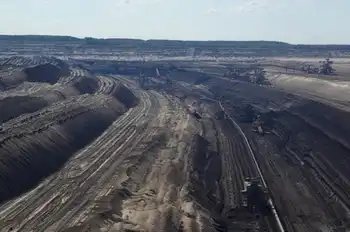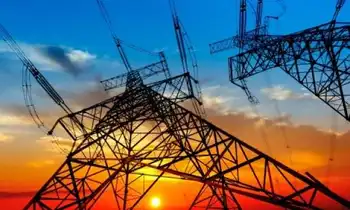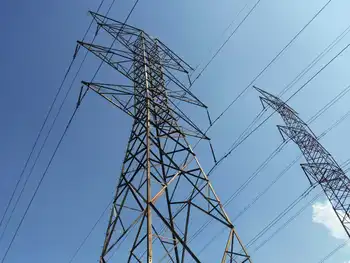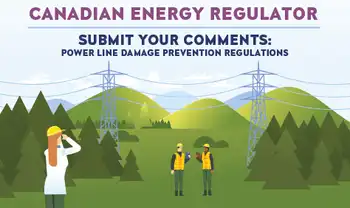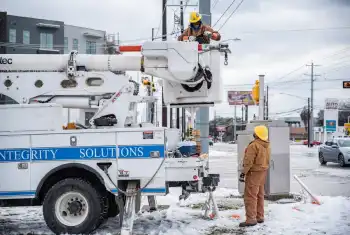US Dept. of Energy awards Washington state $23.4 million to strengthen infrastructure
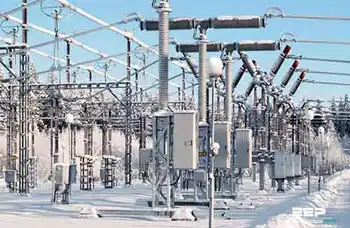
Arc Flash Training CSA Z462 - Electrical Safety Essentials
Our customized live online or in‑person group training can be delivered to your staff at your location.

- Live Online
- 6 hours Instructor-led
- Group Training Available
Washington Grid Resilience Grant funds DOE-backed modernization to harden Washington's electric grid against extreme weather, advancing clean energy, affordable and reliable electricity, and community resilience under the Bipartisan Infrastructure Law via projects and utility partnerships.
Key Points
A $23.4M DOE grant to modernize Washington's grid, boost weather resilience, and deliver clean, reliable power.
✅ Targets outages, reliability, and community resilience statewide.
✅ Prioritizes disadvantaged areas and quality clean energy jobs.
✅ Backed by Bipartisan Infrastructure Law and DOE funding.
Washington state has received a $23.4 million Grid Resilience State and Tribal Formula Grant from the U.S. Department of Energy (DOE) to modernize the electric grid through smarter electricity infrastructure and reduce impacts due to extreme weather and natural disasters. Grid Resilience State and Tribal Formula Grants aim to ensure the reliability of power sector infrastructure so that communities have access to affordable, reliable, clean electricity.
“Electricity is an essential lifeline for communities. Improving our systems by reducing disruptive events is key as we cross the finish line of a 100% clean electricity grid and ensure equitable benefits from the clean energy economy reach every community,” said Gov. Jay Inslee.
The federal funding for energy resilience will enhance and expand ongoing current grid modernization and resilience efforts throughout the state. For example, working directly with rural and typical end-of-the-line customers to develop resilience plans and collaborating with communities and utilities, including smart city efforts in Spokane as examples, on building resilient and renewable infrastructure for essential services.
“This is a significant opportunity to supplement our state investments in building a robust, resilient electric grid that supports our long-term vision for clean, affordable and reliable electricity – the foundation for economic growth and job creation that strengthens our communities and keeps Washington globally competitive. It shows once again that we are maximizing the federal funding being made available by the Biden-Harris Administration to invest in the country’s infrastructure,” said Washington State Department of Commerce Director Mike Fong.
Across the border, British Columbia's clean energy shift adds regional momentum for resilient, low-carbon power.
Goals include:
Reducing the frequency, duration and impact of outages as climate change impacts on the grid intensify while enhancing resiliency in historically disadvantaged communities.
Strengthening prosperity by expanding well-paying, safe clean energy jobs accessible to all workers and ensuring investments have a positive effect on quality job creation and equitable economic development.
Building a community of practice and maximizing project scalability by identifying pathways for scaling innovations such as integrating solar into the grid across programs.
“The Grid Resilience Formula Grants will enable communities in Washington to protect households and businesses from blackouts or power shutdowns during extreme weather,” said Maria Robinson, Director, Grid Deployment Office, U.S. Department of Energy. “Projects selected through this program will benefit communities by creating good-paying jobs to deliver clean, affordable, and reliable energy across the country.”
DOE has also announced $34 million for grid improvements to bolster reliability nationwide.
“An innovative, reliable, and efficient power grid is vital to Washington’s continued economic growth and for community resilience especially in disadvantaged areas,” said U.S. Rep. Strickland, Co-Lead of the bipartisan Grid Innovation Caucus. “The funding announced today will invest in our energy grid, support good-paying jobs, and means a cleaner, more energy-efficient future.”
Funded through the Bipartisan Infrastructure Law and administered by DOE’s Grid Deployment Office, with related efforts such as California grid upgrades advancing nationwide, the Grid Resilience State and Tribal Formula Grants distribute funding to states, territories, and federally recognized Indian Tribes, over five years based on a formula that includes factors such as population size, land area, probability and severity of disruptive events, and a locality’s historical expenditures on mitigation efforts. Priority will be given to projects that generate the greatest community benefit providing clean, affordable, and reliable energy.






